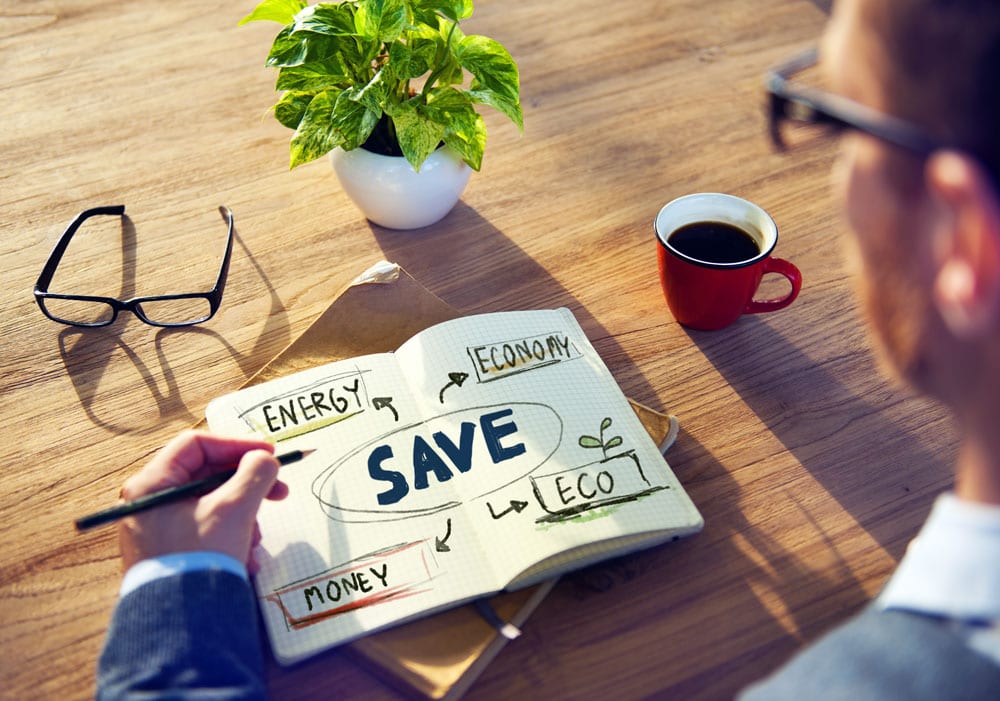In today’s world, rising utility bills are becoming a major financial burden for many households. However, there’s a growing awareness that we can make a difference—not only for the planet but also for our wallets
By adopting sustainable financial practices, we can reduce both energy and water consumption, leading to substantial savings. In this guide, we will explore how you can optimize your household expenses by making eco-friendly changes that won’t break the bank.
Energy saving tips: Small changes, big impact

When it comes to reducing energy bills, many people believe that it requires large investments or drastic lifestyle changes. In reality, small adjustments can yield significant results.
Switch to energy-efficient appliances
One of the most effective ways to reduce energy consumption is by upgrading to energy-efficient appliances. Appliances that have the Energy Star label, for example, consume less electricity, saving you money in the long run. This includes everything from refrigerators and dishwashers to washing machines and light bulbs.
Embrace smart thermostats
Investing in a smart thermostat is a game-changer for controlling heating and cooling costs. These devices learn your habits and adjust the temperature accordingly, so your home is never wasting energy when it doesn’t need to be. Plus, many smart thermostats come with apps that let you monitor and adjust settings remotely.
Unplug and save: The phantom power drain
Did you know that electronics and appliances continue to draw power even when they’re turned off? This phenomenon is called “phantom power” or “vampire energy.” To avoid this, unplug devices when not in use or use power strips that can be easily turned off, preventing unnecessary energy consumption.
Optimize your home’s insulation
Proper insulation is key to maintaining an energy-efficient home. Heat loss in the winter and heat gain in the summer can cause your HVAC system to work overtime. By sealing cracks around windows, doors, and vents, and adding insulation to your walls or attic, you can reduce the need for excessive heating or cooling.
Water conservation: Saving more than just money
Water conservation is just as important as energy conservation. By reducing your water consumption, you’re not only lowering your utility bills but also helping preserve one of our most valuable resources.
Install low-flow fixtures
Low-flow showerheads, faucets, and toilets are simple and affordable upgrades that can drastically reduce water usage. These fixtures are designed to provide a satisfying flow while using far less water, saving you money without compromising performance.
Fix leaks immediately
A leaky faucet might seem like a minor issue, but over time, those small drips can add up to gallons of wasted water. Regularly check for leaks in your pipes, faucets, and appliances, and repair them as soon as possible to prevent unnecessary water loss and additional costs.
Use a dishwasher and laundry efficiently
When using your dishwasher or washing machine, always make sure to run full loads. This maximizes the energy and water efficiency of each cycle. Additionally, opt for shorter cycles and cold water washes when possible, as they require less energy.
Install a water heater timer
Water heaters consume a significant amount of energy, especially if they’re left running all day. A timer on your water heater can help ensure it’s only heating water when necessary, avoiding energy waste. Some smart timers can even be programmed based on your household’s routine.
Behavioral changes: Shifting to sustainable habits
While equipment upgrades and installations are effective, there are also behavioral changes you can make to reduce your consumption and save money.
Be mindful of your energy and water usage
One of the simplest yet most powerful actions you can take is being conscious of how much energy and water you’re using daily. Turn off lights when you leave a room, take shorter showers, and avoid leaving the tap running while washing dishes. Small actions, when done consistently, can lead to noticeable savings.
Maximize natural light
Instead of relying on artificial lighting throughout the day, take advantage of natural light whenever possible. Open blinds and curtains to let sunlight in, and try to position furniture in a way that maximizes daylight exposure. This reduces the need for electric lighting and keeps your home brighter without added costs.
Opt for cold water washing
Heating water for laundry consumes a lot of energy. Switching to cold water washes whenever possible can significantly reduce your energy bill. Most modern detergents work just as well in cold water, so there’s no compromise in cleanliness.
Monitor your usage with apps and tools
Many energy and water companies offer apps or online portals that allow you to track your consumption. By reviewing your usage patterns regularly, you can identify areas where you might be wasting resources and adjust your habits accordingly.
Investing in long-term savings
Though many of these tips offer immediate savings, there are longer-term strategies that can provide even greater financial benefits over time.
Consider solar panels
While the upfront cost of installing solar panels may seem high, the long-term savings can be significant. Solar energy can power your home, reducing your reliance on traditional electricity sources and saving you money on your utility bills. Additionally, many regions offer tax incentives or rebates for installing solar energy systems, further increasing the financial benefit.
Rainwater harvesting
Another investment worth considering is rainwater harvesting. By collecting rainwater, you can use it for non-potable purposes like watering your garden or flushing toilets. This reduces your overall water consumption, cutting down on your water bill over time.
Conclusion: A sustainable future with financial benefits
Adopting sustainable practices to reduce your energy and water bills doesn’t have to be a daunting task. With a few simple changes, you can make a significant difference in both your finances and the environment.
Start by embracing small adjustments like using energy-efficient appliances, fixing leaks, and being mindful of your usage. As you continue to integrate these habits into your daily life, you’ll see both immediate and long-term savings, proving that sustainable living doesn’t just benefit the planet—it benefits your wallet too.



